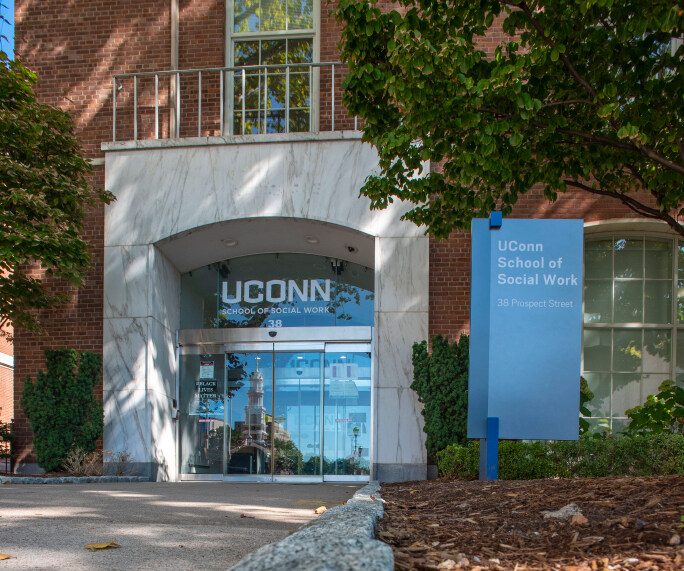Samantha E. Lawrence, Ph.D., recently joined the UConn School of Social Work as an assistant research professor and research and evaluation lead. She also serves as co-principal investigator for the Connecticut Office of Early Childhood – UConn School of Social Work Partnership.
Lawrence earned her doctorate, M.A., and B.A. degrees from UConn. She brings extensive expertise related to mental and behavioral health disparities. She is passionate about promoting equitable access to high-quality, culturally, and developmentally responsive care and education.
Lawrence’s research examines social influences on children’s health, behavior, and well-being, particularly in school, childcare, and family contexts. She emphasizes the importance of understanding the environments that shape children's health.
“I believe that children's health and thriving are rooted in their environments, including those created by their families, schools, and communities,” she said.
Her current work includes evaluations of federal and state-funded early childhood initiatives, child services policies, and the early education system to ensure equitable access to high-quality resources for families. She also uses mixed methods research on experiences and health outcomes among LGBTQ+ youth.
Lawrence’s recently published study in LGBT Health received a Third Annual 2023 Rosalind Franklin Society (RFS) Award in Science recognizing outstanding peer-reviewed research by women and underrepresented minorities in STEM.
Reflecting on her work, Lawrence noted, “It's a privilege to be a part of the OEC-UConn Partnership where I can engage in research and evaluation activities related to vital contexts for healthy child development. Our work has direct implications for Connecticut's early childhood programs, policies, and practices, and it is so rewarding to work in partnership with an agency – the Connecticut Office of Early Childhood – that can actualize these evidence-based findings.”
Prior to joining the UConn School of Social Work, Lawrence was a research fellow at the University of Minnesota Medical School in the Department of Pediatrics, where she led quantitative and qualitative research efforts to identify disparities among youth. She focused on the intersections of sexual orientation, gender identity, and race/ethnicity in emotional distress, disordered eating, sexual and HIV-prevention behaviors, experiences of bias-based bullying, interpersonal protective factors.
